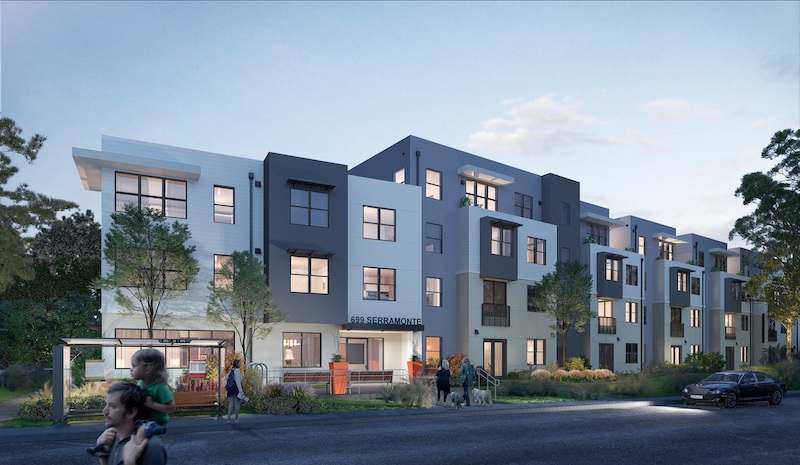The affordable housing shortage in the U.S. is particularly acute in California, where less than one-third of the state’s households can afford a median-priced home that now tops $600,000, or more than twice the national average.
School districts in California’s priciest regions have had trouble attracting and holding onto K-12 teachers whose midrange annual salaries, statewide, are from $67,032 to $87,373 for high school districts; $65,210 to $81,840 for elementary school districts; and from $63,243 to $74,676 for Unified School Districts, according to the California Department of Education.
An analysis last year by EdSource found that in 47 Bay Area school districts, even the highest-paid teachers could only afford a one-bedroom apartment.
To address this need, several of the state’s counties and school districts—including those in Santa Clara, San Francisco, Sonoma County, West Contra Costa, and Mountain View—have either approved the construction of affordable housing for teachers and staff, or are considered it.
One of these districts is Jefferson Union High School in Daly City, where in June 2018 voters approved Measure J, a $33 million general obligation bond to help pay for the construction of affordable apartments for teachers and staff, a first for this state.
This $61 million Serramonte Faculty and Staff Housing project for Jefferson Union High School District broke ground on February 5, and its first units are scheduled to available in the spring of 2022. The facility will consist of 122 apartments, with 59 one-bedroom, 55 two-bedroom, and eight three-bedroom units. The homes will range from 640 to 1,270 sf. Most important, the units’ rent rates will be 50% of market rates at the time occupancy.
J.H. Fitzmaurice, a general contractor based in Emeryville, Calif., is the GC on this project, which SVA Architects designed. The school district, comprised of five schools and a Youth Health Center, has just under 4,900 students, according to the latest data.
A September 2017 survey of the district’s employees (48.5% of whom were tenured teachers), found that 25% of 266 respondents said they were “very interested” in employee housing, 14% were “somewhat interested,” and 24% “would consider” leasing. At the time of the survey, 41.2% of 262 respondents said they owned their homes.
Nearly one-quarter of total respondents were paying between $2,000 and $2,499 per month in rent or mortgage, 13.2% were paying $2,500 to $3,000, and 12.8% were paying more than $3,000. That translated to 29.7% of respondents who were spending 31% to 40% of their household monthly incomes for rent or mortgage, 17.7% paying between 41% and 50% of their incomes, and 13.5% paying more than 50%.
Related Stories
| Aug 11, 2010
CityCenter Takes Experience Design To New Heights
It's early June, in Las Vegas, which means it's very hot, and I am coming to the end of a hardhat tour of the $9.2 billion CityCenter development, a tour that began in the air-conditioned comfort of the project's immense sales center just off the famed Las Vegas Strip and ended on a rooftop overlooking the largest privately funded development in the U.
| Aug 11, 2010
Giants 300 Multifamily Report
Multifamily housing starts dropped to 100,000 in April—the lowest level in several decades—due to still-worsening conditions in the apartment market. Nonetheless, the April total is below trend, so starts will move progressively back to a still-depressed 150,000-unit pace by late next year.
| Aug 11, 2010
The softer side of Sears
Built in 1928 as a shining Art Deco beacon for the upper Midwest, the Sears building in Minneapolis—with its 16-story central tower, department store, catalog center, and warehouse—served customers throughout the Twin Cities area for more than 65 years. But as nearby neighborhoods deteriorated and the catalog operation was shut down, by 1994 the once-grand structure was reduced to ...
| Aug 11, 2010
Gold Award: Westin Book Cadillac Hotel & Condominiums Detroit, Mich.
“From eyesore to icon.” That's how Reconstruction Awards judge K. Nam Shiu so concisely described the restoration effort that turned the decimated Book Cadillac Hotel into a modern hotel and condo development. The tallest hotel in the world when it opened in 1924, the 32-story Renaissance Revival structure was revered as a jewel in the then-bustling Motor City.







